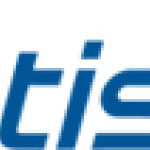- Industrie: Telecommunications
- Number of terms: 29235
- Number of blossaries: 0
- Company Profile:
ATIS is the leading technical planning and standards development organization committed to the rapid development of global, market-driven standards for the information, entertainment and communications industry.
The factor that expresses the attenuation caused by scattering, e.g., of radiant or acoustic energy, during its passage through a medium. Note: The scattering coefficient is usually expressed in units of reciprocal distance.
Industry:Telecommunications
The factor that expresses the attenuation caused by scattering, e.g., of radiant or acoustic energy, during its passage through a medium. Note: The scattering coefficient is usually expressed in units of reciprocal distance.
Industry:Telecommunications
The factor by which the bit rate of a 64-kb/s channel is reduced when transcoding is used, e. G. , when a transcoder conforming to ANSI T1. 303 (i.e., ADPCM 32-kb/s) is used, the transcoding gain will equal 2. Transcoding gain equals 1 when no transcoding is used.
Industry:Telecommunications
The facilities included within a local access and transport area.
Industry:Telecommunications
The extra optical power required to account for degradations due to reflections, intersymbol interference, and mode partition noise.
Industry:Telecommunications
The external current that, under specified biasing conditions, flows in a photoconductive detector when there is no incident radiation.
Industry:Telecommunications
The extent to which protective measures, techniques, and procedures must be applied to information systems (IS) and networks based on risk, threat, vulnerability, system interconnectivity considerations, and information assurance needs. Levels of protection are: 1. Basic: The IS and networks requiring implementation of standard minimum security countermeasures. 2. Medium: The IS and networks requiring layering of additional safeguards above the standard minimum security countermeasures. 3. High: The IS and networks requiring the most stringent protection and rigorous security countermeasures.
Industry:Telecommunications
The extent to which a functional unit will continue to operate at a defined performance level even though one or more of its components are malfunctioning.
Industry:Telecommunications
The expression of the stated power available at the output terminals of a transmitter when connected to the normal load or its equivalent. 2. Under specified ambient conditions, the expression of the power that can be delivered by a device over a long period of time without overheating.
Industry:Telecommunications
